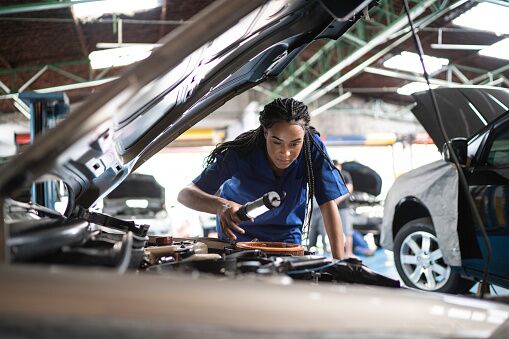All Categories
Featured
Your cars and truck is an essential part of your life, and taking great care of it makes sure that it offers you accurately for several years ahead. While contemporary automobiles are designed to be durable, overlooking appropriate maintenance can result in unneeded failures and pricey repairs. Below's just how you can keep your vehicle running longer and in peak condition.
- Stick to Routine Upkeep. The foundation of a lasting cars and truck is routine upkeep. Follow your supplier's suggested maintenance routine, which can usually be found in your vehicle's owner's handbook. Regular jobs like oil modifications, tire turnings, and brake checks avoid wear and tear and maintain your auto carrying out ideally.
Disregarding oil adjustments is just one of the quickest means to damage your engine. Tidy oil ensures correct lubrication and protects against getting too hot. Depending upon your vehicle and driving habits, oil adjustments are usually needed every 3,000 to 5,000 miles or as defined by the supplier.
- Inspect and Restore Fluids. Your auto depends on numerous fluids to run smoothly. These consist of engine oil, transmission liquid, coolant, brake liquid, and power guiding fluid. Low or dirty liquids can cause engine overheating, slipping equipments, and brake failing.
Make it a routine to check liquid levels routinely. If you observe a significant decrease in liquid degrees, it may suggest a leakage that requires prompt interest. Keeping fluids clean and at the ideal degrees ensures your car runs effectively and protects against expensive fixings.
- Keep an Eye on Your Tires. Tire upkeep is important for both safety and performance. Incorrectly filled with air tires can reduce gas effectiveness, create irregular wear, and enhance the threat of blowouts. Inspect your tire pressure month-to-month and ensure it matches the maker's referrals.
Revolving your tires every 5,000 to 7,500 miles advertises also wear and prolongs their life expectancy. In addition, check your tires for any kind of signs of damages, such as cuts, protrudes, or low tread depth, and change them when needed.
- Replace Worn Parts in a timely manner. Disregarding worn-out components can result in bigger issues down the roadway. For instance, stopping working to replace a used timing belt can result in engine failure. Used brake pads can harm rotors, leading to costly repairs.
Be positive regarding changing parts such as ignition system, filters, and belts based on the producer's guidelines. Utilizing top notch replacement components ensures far better performance and longevity.
- Practice Gentle Driving. The method you drive dramatically impacts the lifespan of your car. Aggressive driving routines, such as quick velocity, sudden braking, and difficult cornering, placed extra tension on the engine, brakes, and tires.
Rather, take on smooth driving techniques. Speed up gradually, keep a stable speed, and brake carefully whenever possible. This decreases deterioration on your auto's elements and enhances gas efficiency.

- Shield Your Cars and truck's Outside. Maintaining your vehicle clean isn't almost looks-- it has to do with stopping damages. Dust, roadway salt, and crud can trigger corrosion and corrosion, specifically in the undercarriage. Routine cleaning, particularly throughout winter season or after driving on salty roads, is vital.
Waxing your auto every few months supplies a protective layer against ecological damages. Additionally, park your vehicle in a garage or use a car cover to protect it from rough climate and UV rays, which can discolor the paint and damages the inside.
- Do Not Ignore Indication. Dashboard caution lights are your car's method of telling you something requires focus. Whether it's the check engine light, reduced oil stress, or tire stress caution, attending to these signals promptly can stop small problems from coming to be major repair services.
If you see uncommon audios, resonances, or adjustments in your vehicle's efficiency, don't neglect them. A specialist mechanic can identify and deal with the issue prior to it rises.
- Shop Your Vehicle Properly. If you're not utilizing your vehicle for a prolonged duration, proper storage space is essential. Keep your vehicle in a cool, completely dry location to secure it from weather damages. Make use of a battery tender to keep the battery cost and add a fuel stabilizer to avoid the gas from deteriorating.

Beginning the auto occasionally or taking it for a brief drive can keep all systems in functioning order and avoid parts from seizing up.
Verdict: Consistency Is Trick. Maintaining your automobile running much longer does not need challenging steps-- just consistency and interest to detail. Treat your car with treatment, and it will certainly compensate you with dependability, better performance, and years of reputable solution.
Latest Posts
Learn About Auto Services & More: Full Repair Options from Montclare Auto Repair
Uncover Reduce Expenses on Car Maintenance with Montclare Auto Repair’s Limited-Time Deals
The Benefits of Consistent Vehicle Maintenance at Montclare Auto Repair Keeps Your Wallet Happy
More
Latest Posts
Learn About Auto Services & More: Full Repair Options from Montclare Auto Repair
Uncover Reduce Expenses on Car Maintenance with Montclare Auto Repair’s Limited-Time Deals
The Benefits of Consistent Vehicle Maintenance at Montclare Auto Repair Keeps Your Wallet Happy